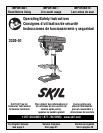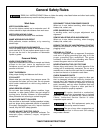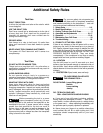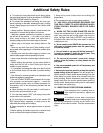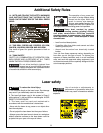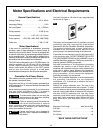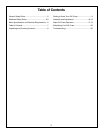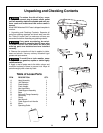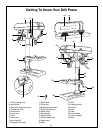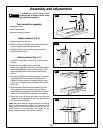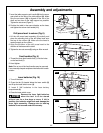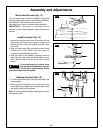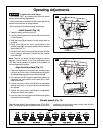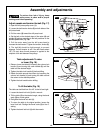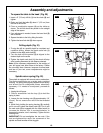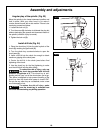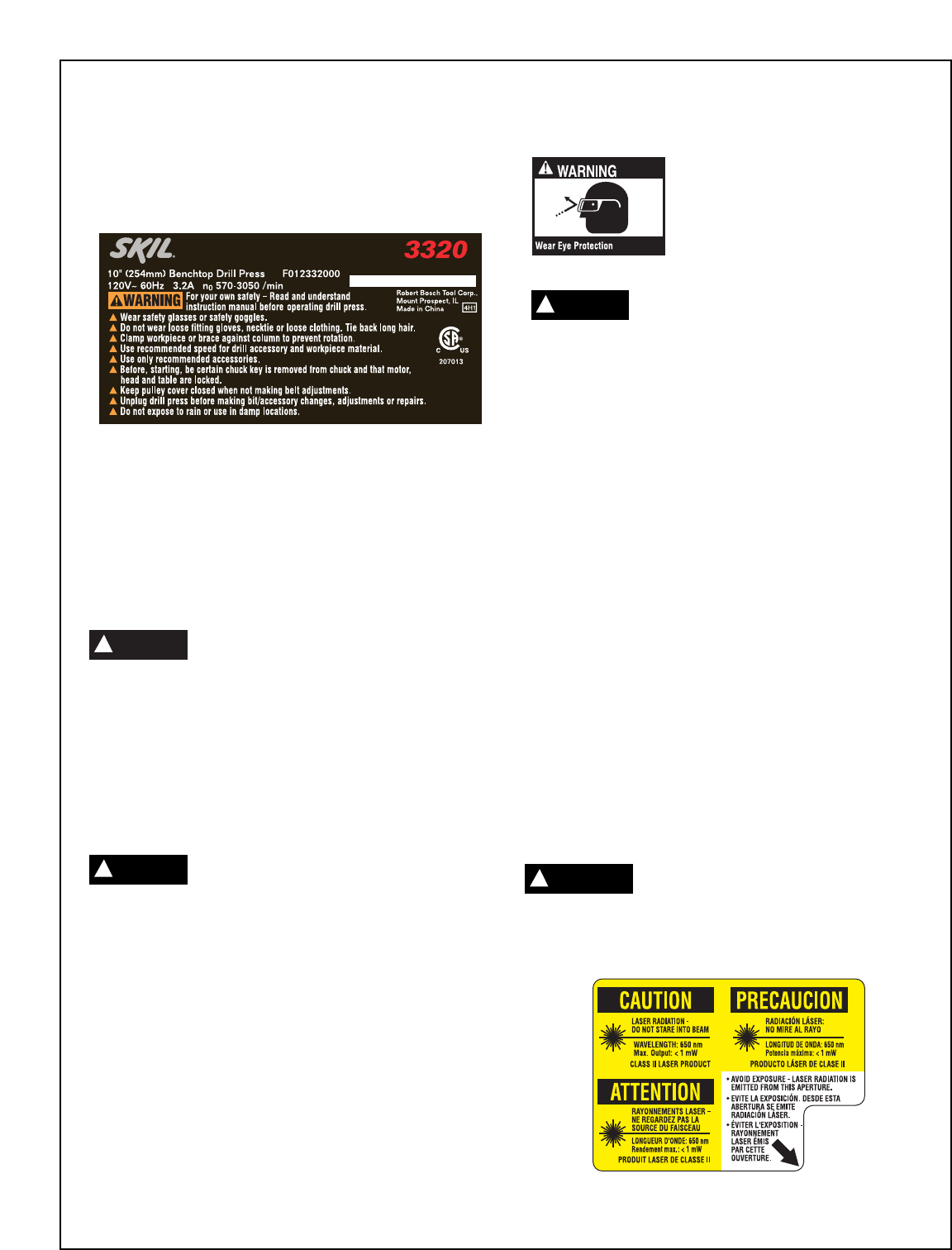
5.
Additional Safety Rules
Laser safety
To reduce the risk of injury:
1. Do not stare directly at the laser beam. Eye damage
may occur if you deliberately stare into the beam.
2. The laser light beam used in this system is Class II
with maximum 1 mW and 650 nm wavelengths. AVOID
DIRECT EYE EXPOSURE.
3. The laser must be used and maintained in
accordance with the manufacturer’s instructions:
• Never aim the beam at any person or an object other
than the workpiece.
• Do not project the laser beam into the eyes of others.
• Always ensure the laser beam is aimed at a workpiece
without reflective surfaces as the laser beam could be
projected into your eyes or the eyes of others.
Use of controls or adjustments or
performance of procedures other than
those specified herein may result in hazardous radiation
exposure.
14. NOTE AND FOLLOW THE SAFETY WARNINGS
AND INSTRUCTIONS THAT APPEAR ON THE
PANEL ON THE RIGHT SIDE OF THE DRILL PRESS
HEAD:
15. THIS DRILL PRESS HAS 5 SPEEDS: 570 RPM,
900 RPM, 1390 RPM, 2050 RPM AND 3050 RPM.
See inside of guard for specific placement of belt on
pulleys.
16. THINK SAFETY
SAFETY IS A COMBINATION OF OPERATOR COM-
MON SENSE AND ALERTNESS AT ALL TIMES
WHEN THE DRILL PRESS IS BEING USED.
Do not allow familiarity (gained from
frequent use of your drill press) to become
commonplace. Always remember that a careless fraction
of a second is sufficient to inflict severe injury.
The operation of any power tool
can result in foreign objects being
thrown into the eyes, which can
result in severe eye damage.
A
lways wear safety goggles that
comply with ANSI Z87.1 (shown on
Package) before commencing power tool operation.
Some dust created by power
sanding, sawing, grinding, drilling,
and other construction activities contains
chemicals known to cause cancer, birth defects or
other reproductive harm. Some examples of these
chemicals are:
• Lead from lead-based paints,
• Crystalline silica from bricks and cement and other
masonry products, and
• Arsenic and chromium from chemically treated
lumber.
Your risk from these exposures varies, depending on
how often you do this type of work. To reduce your
exposure to these chemicals: work in a well ventilated
area, and work with approved safety equipment, such
as those dust masks that are specially designed to filter
out microscopic particles.
WARNING
!
WARNING
!
WARNING
!
CAUTION
!



